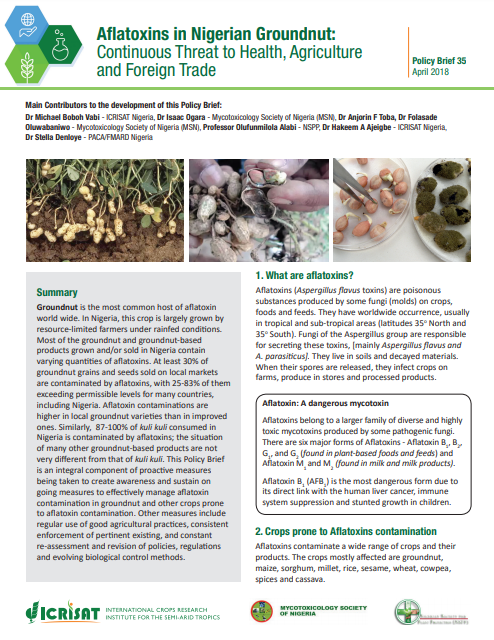Aflatoxins in Nigerian groundnut: continuous threat to health, agriculture and foreign trade
Summary
Groundnut is the most common host of aflatoxin worldwide. In Nigeria, this crop is largely grown by resource-limited farmers under rainfed conditions. Most groundnut and groundnut-based products grown and/or sold in Nigeria contain varying quantities of aflatoxins. At least 30% of groundnut grains and seeds sold on local markets are contaminated by aflatoxins, with 25–83% exceeding permissible levels for many countries, including Nigeria. Aflatoxin contaminations are higher in local groundnut varieties than in improved ones. Similarly, 87–100% of kuli kuli consumed in Nigeria is contaminated by aflatoxins; the situation of many other groundnut-based products is not very different. This policy brief is an integral component of proactive measures being taken to create awareness and sustain ongoing measures to effectively manage aflatoxin contamination in groundnut and other crops prone to aflatoxin contamination. Other measures include regular use of good agricultural practices, consistent enforcement of pertinent existing practices, and constant re-assessment and revision of policies, regulations, and evolving biological control methods.
Open resource Download resource Access resource on external site

